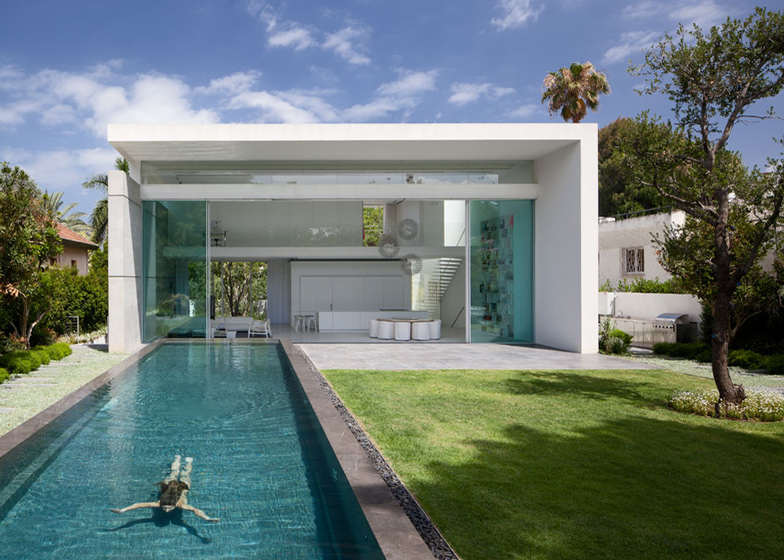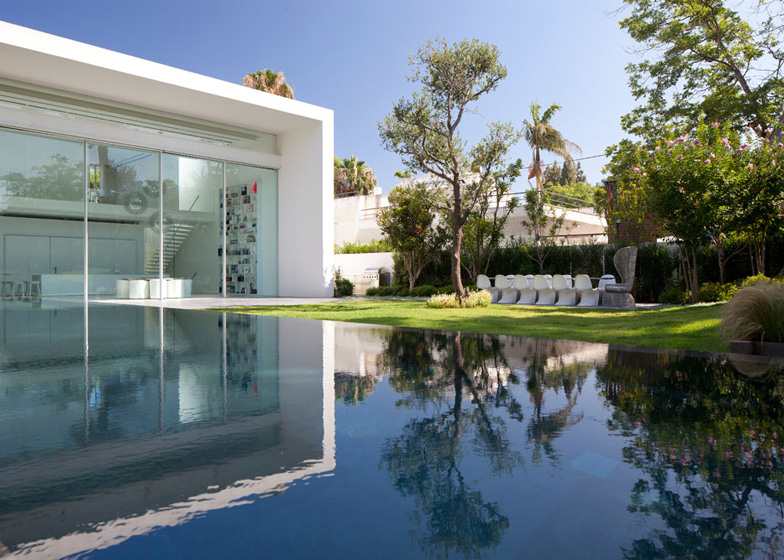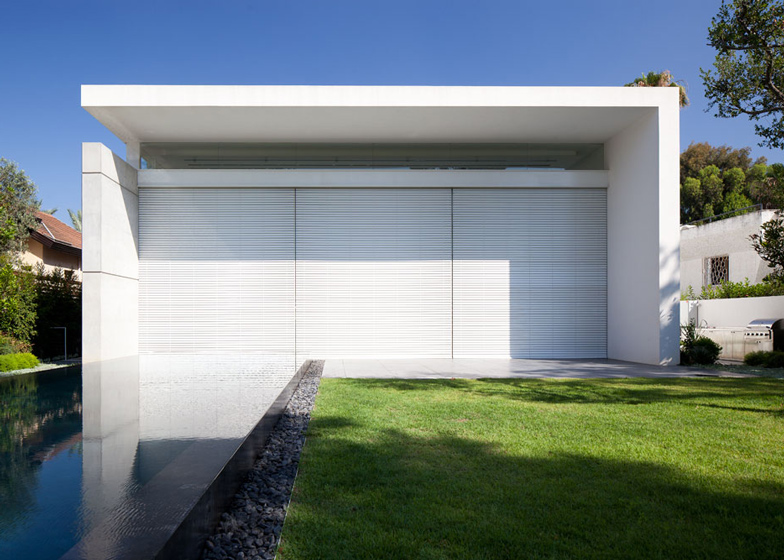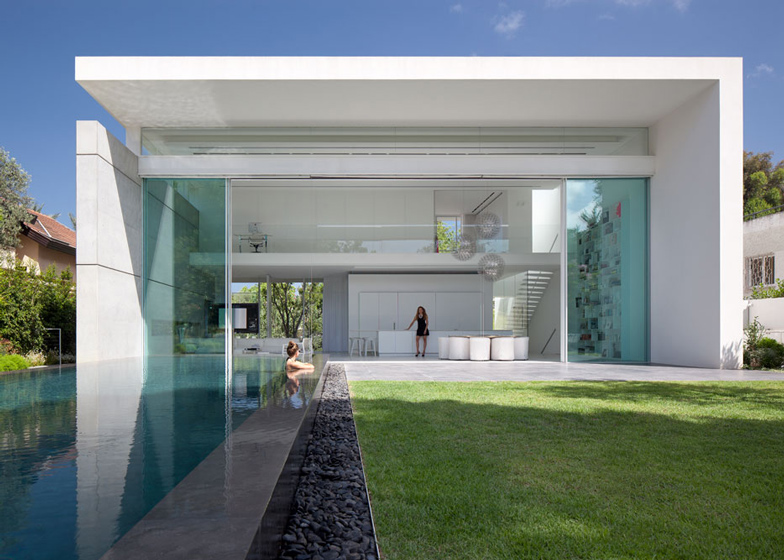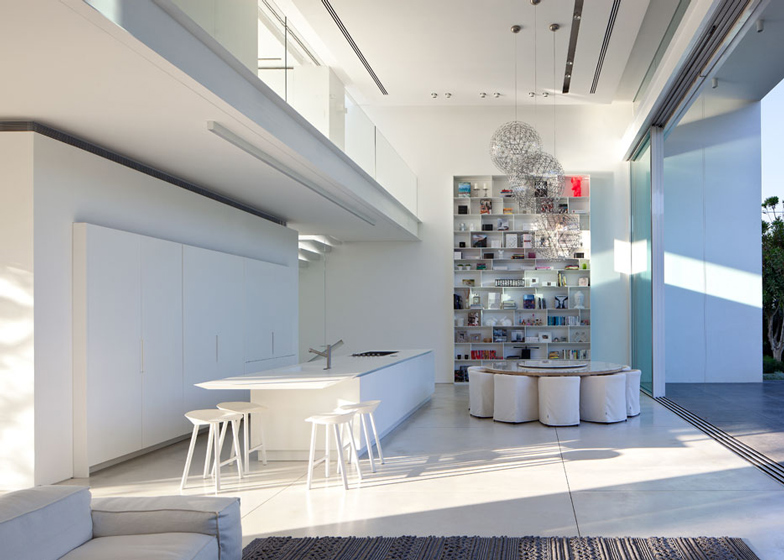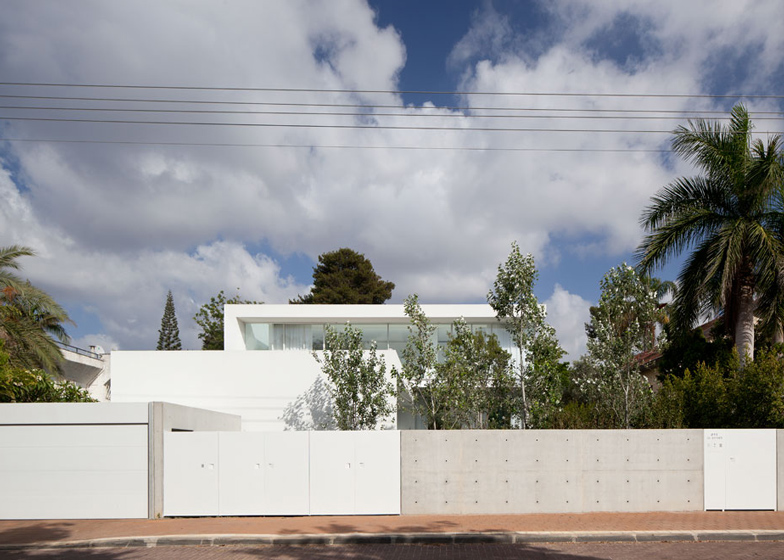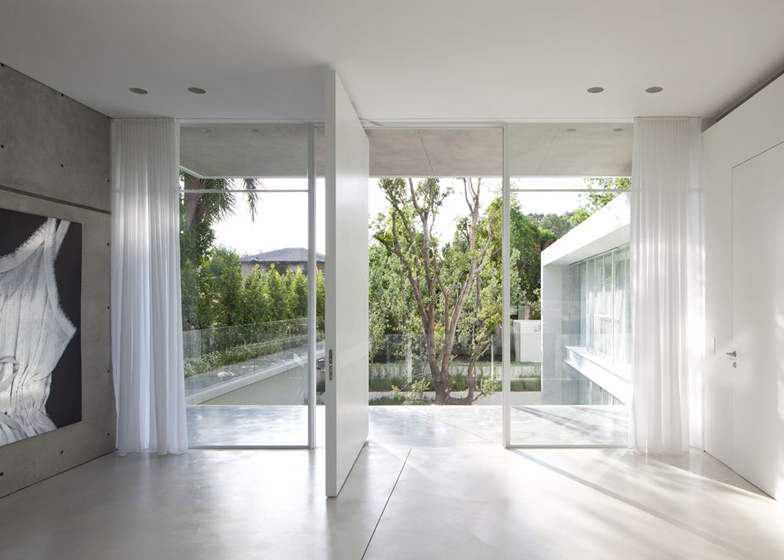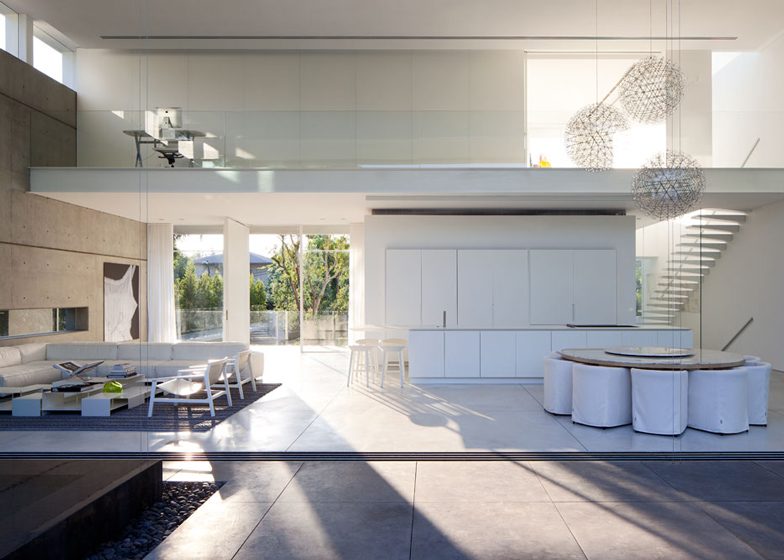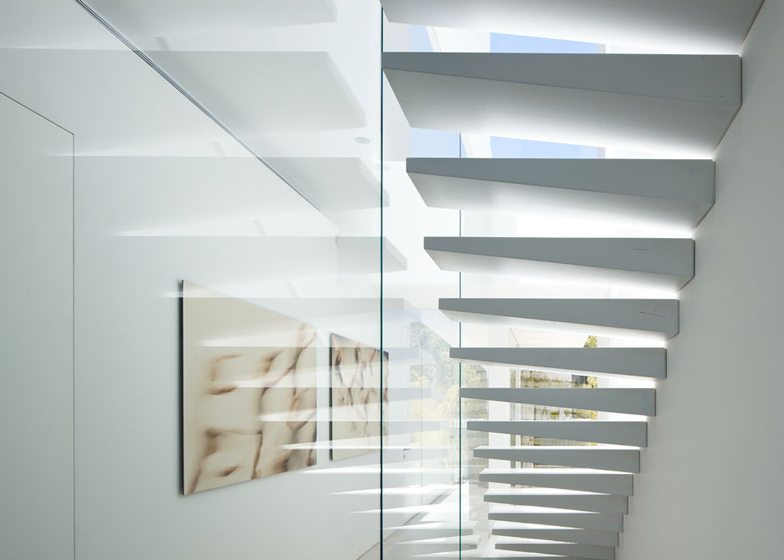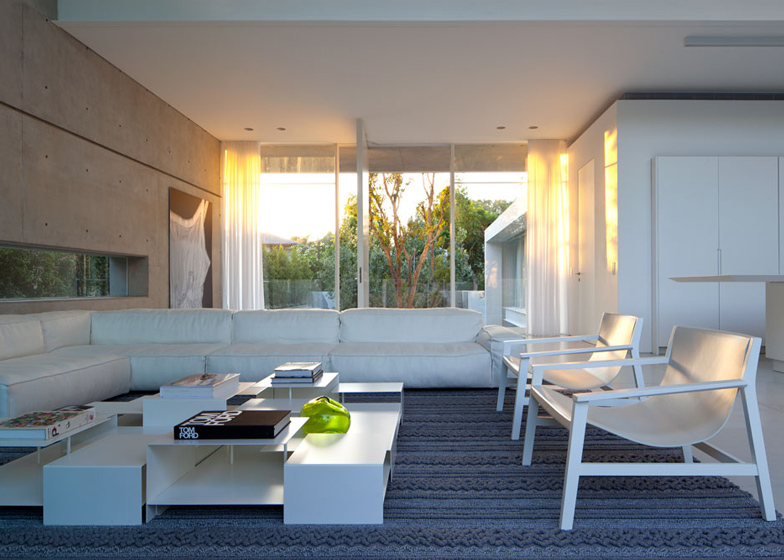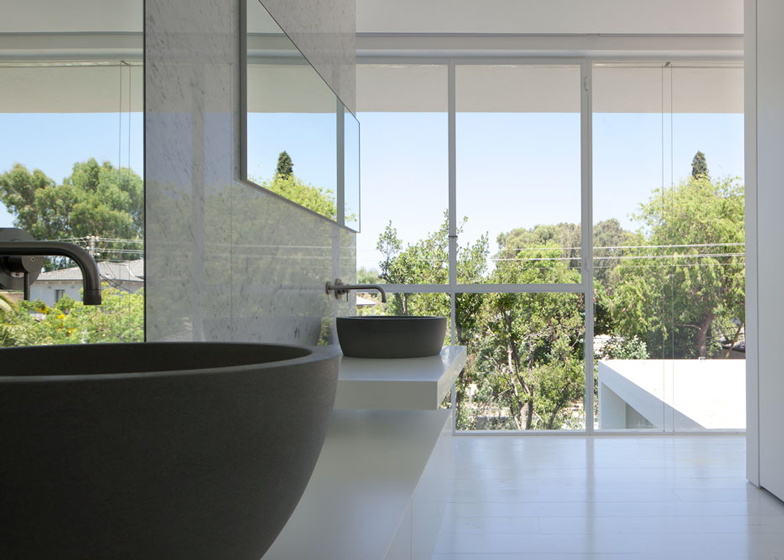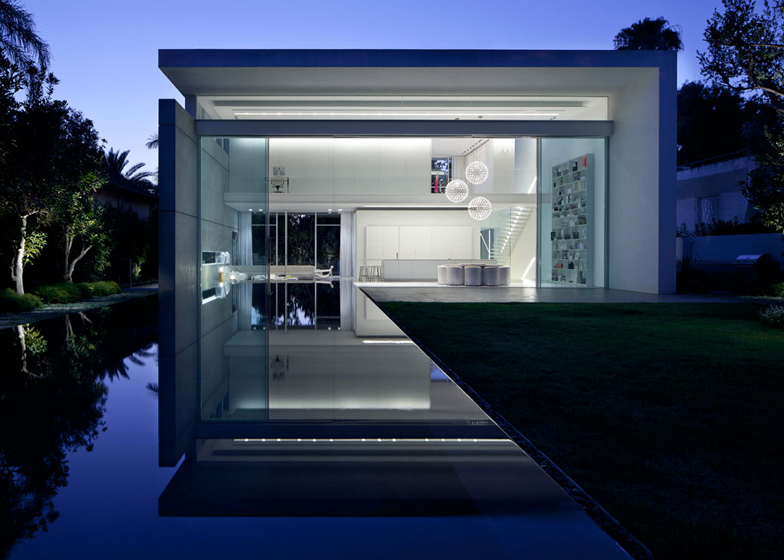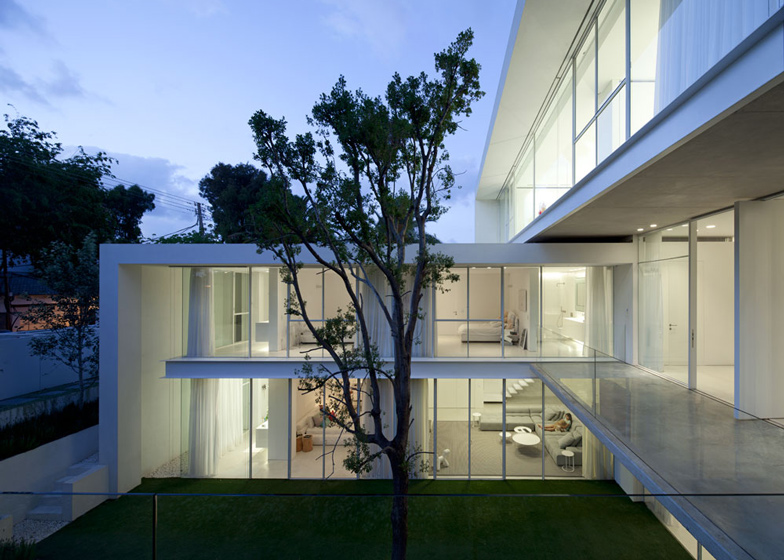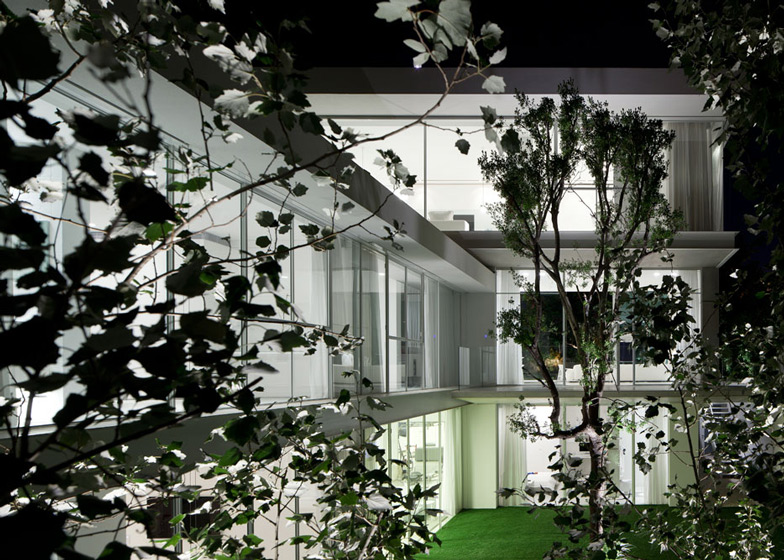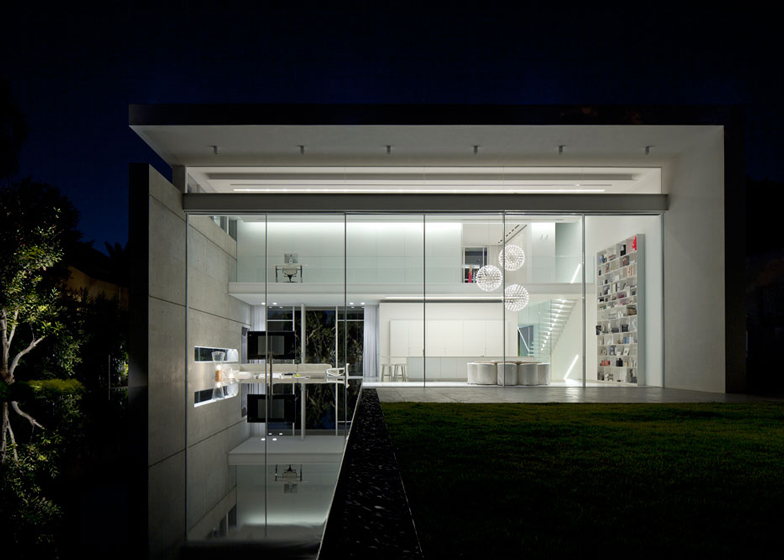Double-height glass doors slide back to open up an entire facade of this house in Israel by architect Pitsou Kedem (+ slideshow).
Israel-based Pitsou Kedem placed the open-plan lounge, dining areas and kitchen between two outdoor spaces so they would receive light from both east and west.
"This provides a feeling that the space is constantly enveloped by natural light and the greenery of the trees in the courtyard," said the architect.
The six-metre-high living area is fronted with giant sheets of glass, which slide open on an electric motor to connect the inside to an expansive terrace.
From the end of the back garden, a long thin infinity pool looks like it extends into the house.
A courtyard at the front of the property is sunk to the basement level, with terraced planters stepping down to the excavated area from the boundary wall.
Floating steps lead up from the front gate to a bridge, which connects to the entrance in the three-storey volume parallel to the street.
The home comprises two perpendicular intersecting volumes and the smaller cuboid housing the bedrooms protrudes into the kitchen space, next to the swivelling front door.
Staircases on the other side go down to the children's living room and up to a mezzanine balcony.
Apart from heavy concrete and white rendered end walls, all rooms are glazed from floor to ceiling but can be veiled with white curtains. Shutters roll down in front of the huge glass wall for privacy and security.
Pitsou Kedem's other projects include a family house with timber screens that fold back in all different directions and a furniture showroom inside an industrial warehouse.
See more residential architecture »
See more architecture by Pitsou Kedem »
See more architecture and design in Israel »
Photography is by Amit Geron.
Read on for more information from the architects:
Between two courtyards
A private residence, built between two, central courtyards.
A frontal courtyard excavated to a depth of three meters and the second courtyard at the level of the building's ground floor.
This topographical interface creates a unique cross section to the building's mass with each part of the building, even the section constructed as a basement, being open to its own courtyard.
The central space of the kitchen, the dining room and the living room is open in two directions – to the west and to the east. This provides a feeling that the space is constantly enveloped by natural light and the greenery of the trees in the courtyard.
The structure's central space, set in the centre of the plot, is accessed via a long bridge that crosses the sunken courtyard and leads to the front door.
From the bridge, we can see the children's living rooms which open into the basement.
The house's central space rises to a height of six meters and is 17 metres long.
There are no pillars in the space and the entire front is transparent with glass windows that slide apart with the aid of an electric motor.
Thus, the entire interior of the home opens into the courtyard and the border between inside and outside is cancelled.
The swimming pool seems as if it extends into the structure and, when looking into the house from the courtyard, the house in reflected in the pool which strengthens our impression of the building's mass.
The master bedroom is set on the second floor and opens onto the double space and the courtyard allowing for a view of the entire plot.
The structures two supporting side walls have been emphasised, one was poured from exposed, architectural concrete and on the other a large library reaches to its full height.
Architecture: Pitsou Kedem Architects
Design team: Pitsou Kedem, Nurit Ben Yosef

